Your air conditioner's compressor is like the heart of your cooling system. When it starts to fail, your entire AC unit can't work properly. This means hot air instead of cool air, higher energy bills, and uncomfortable temperatures in your home.
The good news is that failing compressors show clear warning signs before they completely break down, giving you time to take action. Strange noises, poor cooling, and frequent system shutdowns are just a few signals that something is wrong. Catching these signs early can save you from a complete system failure during the hottest days of summer.
We'll walk you through the key symptoms to watch for and help you understand when repair makes sense versus when replacement is your best option. You'll also learn what factors cause compressors to fail and what costs to expect if replacement becomes necessary.
Let’s break down the key points you should consider:
- How to know if your AC compressor is failing
- What causes AC compressors to break down?
- When replacement is better than repair
- AC compressor replacement cost: What to expect
Keep reading to learn how to spot the signs of AC compressor failure and when it’s time for a replacement.
How to know if your AC compressor is failing
A failing compressor shows clear warning signs through unusual sounds, warm air output, and electrical problems. These symptoms help us identify when the compressor needs replacement before complete system failure occurs.
Strange noises and vibrations coming from the unit
Grinding sounds often signal internal damage to the compressor's motor or moving parts. This noise means metal components are rubbing against each other.
Squealing or screeching typically indicates worn bearings or belt problems. These sounds get louder as the damage gets worse.
Banging or clanking suggests loose parts inside the compressor. We should turn off the system immediately when we hear these noises.
Excessive vibrations shake the entire unit. Normal compressors run smoothly with minimal vibration.
The compressor may also make clicking sounds when it tries to start but fails. This happens when electrical components are damaged.
Humming without cooling means the compressor is getting power but cannot start properly. This often occurs right before complete failure.
AC blowing warm air or not turning on at all
Warm air from vents is the most obvious sign of compressor failure. The compressor cannot compress refrigerant to remove heat from our home.
Sometimes the fan runs but produces no cool air. Other times, the entire system refuses to start.
Short cycling happens when the compressor turns on and off quickly. This prevents proper cooling and damages other components.
We might notice the thermostat shows the system is running, but indoor temperatures keep rising. The compressor cannot maintain the set temperature.
Complete system shutdown occurs when the compressor fails entirely. Safety switches prevent the unit from starting with a broken compressor.
Some units blow air that starts cool but quickly becomes warm. This indicates the compressor is struggling to maintain proper refrigerant pressure.
Tripped breakers and high energy bills
Frequent breaker trips happen when the compressor draws too much electricity. A failing compressor works harder and uses more power.
According to the U.S. Department of Energy, central air conditioners typically account for around 12 % of a home’s electricity use, with annual costs averaging over $29 billion—that’s why a failing compressor can quickly drive up energy bills.
We should check the electrical panel if our AC stops working suddenly. Reset breakers may indicate compressor problems.
Rising energy bills without increased usage often point to compressor issues. The system runs longer to achieve the same cooling.
Hard starting causes power surges that trip breakers. The compressor needs extra electricity to overcome internal resistance.
Old compressors may cause voltage fluctuations that affect other appliances. We might notice lights dimming when the AC starts.
Burning smells combined with tripped breakers suggest serious electrical problems. We should call a technician immediately and avoid resetting breakers repeatedly.
What causes AC compressors to break down?
AC compressors fail due to electrical problems, dirty system components, and poor maintenance habits.
These issues put extra stress on the compressor and can cause expensive damage over time.
Electrical Issues and Power Surges
Power surges damage compressor motors and control circuits. When voltage spikes occur, they can burn out electrical components inside the compressor unit.
Common electrical problems include:
- Lightning strikes during storms
- Power grid fluctuations
- Faulty wiring in your home
- Overloaded electrical circuits
We see compressors fail when they don't get steady power. Low voltage makes the motor work harder than normal. High voltage can fry the internal wiring.
Old electrical connections cause problems too. Loose wires create heat and can spark. This damages the compressor's electrical parts.
Your breaker box affects compressor health. If the breaker trips often, it signals electrical issues. A qualified electrician should check your AC's electrical connections yearly.
Dirty coils or clogged refrigerant lines
Dirty evaporator and condenser coils make compressors work harder. When coils can't transfer heat properly, pressure builds up in the system.
Dirty coils cause these problems:
- Higher operating temperatures
- Increased energy use
- Reduced cooling capacity
- Compressor overheating
Clogged refrigerant lines restrict coolant flow. This creates pressure imbalances that stress compressor parts. Debris in lines can damage internal components.
We find that outdoor units collect dirt, leaves, and grass clippings. These block airflow through the condenser coils. Indoor coils get dusty when air filters aren't changed.
Refrigerant leaks also harm compressors. Low refrigerant levels make the compressor pump harder. This extra work leads to mechanical failure.
Lack of routine maintenance and filter replacement
Skipping regular maintenance shortens compressor life. Dirty air filters block airflow and make systems work harder than designed.
According to the U.S. Department of Energy, regular maintenance of your AC’s filters, coils, fins, and refrigerant lines is essential for efficient and effective performance—neglecting these tasks accelerates wear and leads to premature compressor failure
Key maintenance tasks include:
- Changing air filters monthly
- Cleaning coils twice yearly
- Checking refrigerant levels
- Inspecting electrical connections
Clogged filters reduce airflow to the evaporator coil. This causes the coil to freeze up. When ice melts, water can damage electrical parts.
We recommend professional tune-ups twice per year. Technicians spot small problems before they become major repairs. They also check that your system has proper refrigerant levels.
Neglected systems break down more often. Simple tasks like filter changes prevent expensive compressor replacements. Regular maintenance saves money and extends equipment life.
When replacement is better than repair
Sometimes fixing a broken AC compressor costs more than it's worth, especially when your unit is old or has ongoing problems. We need to look at your system's age, energy ratings, and overall condition to make the best choice.
Age of the unit and repair history
AC units typically last 10 to 15 years with proper care. If your system is in this age range, we should consider replacement over repair.
Older units break down more often. When repair costs exceed 50% of a new compressor's price, replacement makes more sense financially.
Signs that point to replacement:
- Multiple repairs in the past two years
- Unit is 12+ years old
- Repair estimate is over $1,500
- Parts are hard to find for your model
We also need to think about future repairs. An aging system will likely need more fixes soon after we repair the compressor.
Your repair history tells us a lot. If you've spent money on other major parts recently, the compressor failure might be part of a bigger problem.
Matching SEER ratings and compatibility
SEER ratings measure how efficiently your AC uses energy. Newer compressors often have higher SEER ratings than older indoor units.
Compatibility issues we see:
- Old indoor coil can't handle new compressor efficiency
- Refrigerant types don't match
- Electrical systems need updates
- Ductwork may be too small
When we put a new compressor in an old system, we might not get the energy savings we expect. The indoor and outdoor units need to work together properly.
Mismatched components can cause the new compressor to fail early. This means more repair costs for you later.
If your indoor unit is also old, replacing the whole system gives you better performance and reliability.
Signs it's time to upgrade your entire HVAC system
Some problems mean your whole HVAC system needs replacement, not just the compressor.
Clear signs we need full replacement:
- No cool air even after other repairs
- System runs constantly but doesn't cool
- Energy bills keep going up
- Humidity problems throughout your home
Your ductwork condition matters too. Old, leaky ducts waste energy and make new equipment work harder.
We should replace everything when multiple major parts fail close together. This includes the compressor, condenser coil, and blower motor.
Full system replacement costs more upfront but saves money long-term. You get better efficiency, fewer repairs, and improved comfort.
Modern HVAC systems also have better controls and smart features that work best when all parts are new and designed to work together.
AC compressor replacement cost: What to expect
Replacing an AC compressor typically costs between $800 and $2,800 for most homeowners. The final price depends on your unit size, brand, and whether replacing the compressor makes more sense than buying a new system entirely.
Average replacement price for residential units
Parts and labor costs for compressor replacement range from $800 to $2,300 in 2025. The compressor itself costs $400 to $1,600, while labor adds $400 to $1,200 to your total bill.
Most homeowners pay around $1,200 on average. However, your final cost depends on several key factors.
Unit size affects pricing significantly. Smaller residential units cost less to repair than larger systems. A 2-ton unit typically costs $800 to $1,500, while 5-ton units can reach $2,300 or more.
Brand choice also impacts your budget. Premium brands like Carrier or Trane cost more than basic models. However, higher-end compressors often last longer and come with better warranties.
The cost breaks down to about 45% for parts and 55% for labor. HVAC technicians charge $50 to $150 per hour, and compressor replacement takes 4 to 8 hours depending on your system.
Compressor vs. full system replacement: Which is smarter?
Age matters most when deciding between compressor replacement and full system replacement. If your AC unit is over 10 years old, we recommend considering a new system instead.
A new central air system costs $3,000 to $7,000. While this seems expensive, it often makes more financial sense than spending $2,000 on a compressor for an aging unit.
The 50% rule helps guide your decision. If repair costs exceed 50% of your system's current value, replacement is usually smarter. For a 12-year-old unit worth $2,000, spending $1,500 on a compressor doesn't make sense.
New systems also offer better energy efficiency. Modern units use 20-30% less energy than systems from 10 years ago. These savings can offset replacement costs over time.
Consider your home's cooling needs too. If your current system struggles to cool your space, a new unit with proper sizing will solve multiple problems at once.
Warranties, labor fees, and hidden charges to consider
Warranty coverage varies significantly between contractors and manufacturers. New compressors typically come with 5 to 10-year parts warranties. However, labor warranties usually last only 1 to 2 years.
Always ask about warranty terms before agreeing to work. Some contractors offer extended labor warranties for an additional fee.
Hidden charges can surprise homeowners during replacement. Refrigerant refills cost $100 to $300 extra. Many systems need new refrigerant lines, adding $200 to $500 to your bill.
Electrical work sometimes becomes necessary. Older homes may need panel upgrades or new circuits, costing $300 to $800 additional.
Permit fees range from $50 to $200 in most areas. Some contractors include permits in their quotes, while others charge separately.
We recommend getting written estimates from three contractors. Compare not just the total price, but also what each quote includes. This helps you avoid unexpected costs and choose the best value for your situation.
Conclusion
A failing AC compressor can cause big problems for your home's cooling system. We've covered the main warning signs that show when you need a replacement.
Early detection saves money and prevents bigger repairs. When you notice these signs, it's time to call a professional HVAC technician.
We recommend getting regular maintenance to extend your compressor's life. This helps catch problems before they become expensive failures.
The choice between repair and replacement depends on several factors. These include the age of your unit, cost of repairs, and overall system condition.
Professional diagnosis is always the best approach. HVAC experts can properly assess your compressor and recommend the right solution.
Taking action quickly when problems start protects your investment. It also keeps your home comfortable during hot weather.
Regular inspection and maintenance help prevent unexpected breakdowns. This approach saves money and extends your AC system's lifespan.
Schedule an AC compressor inspection today to prevent full system failure and restore efficient cooling before summer heat sets in.

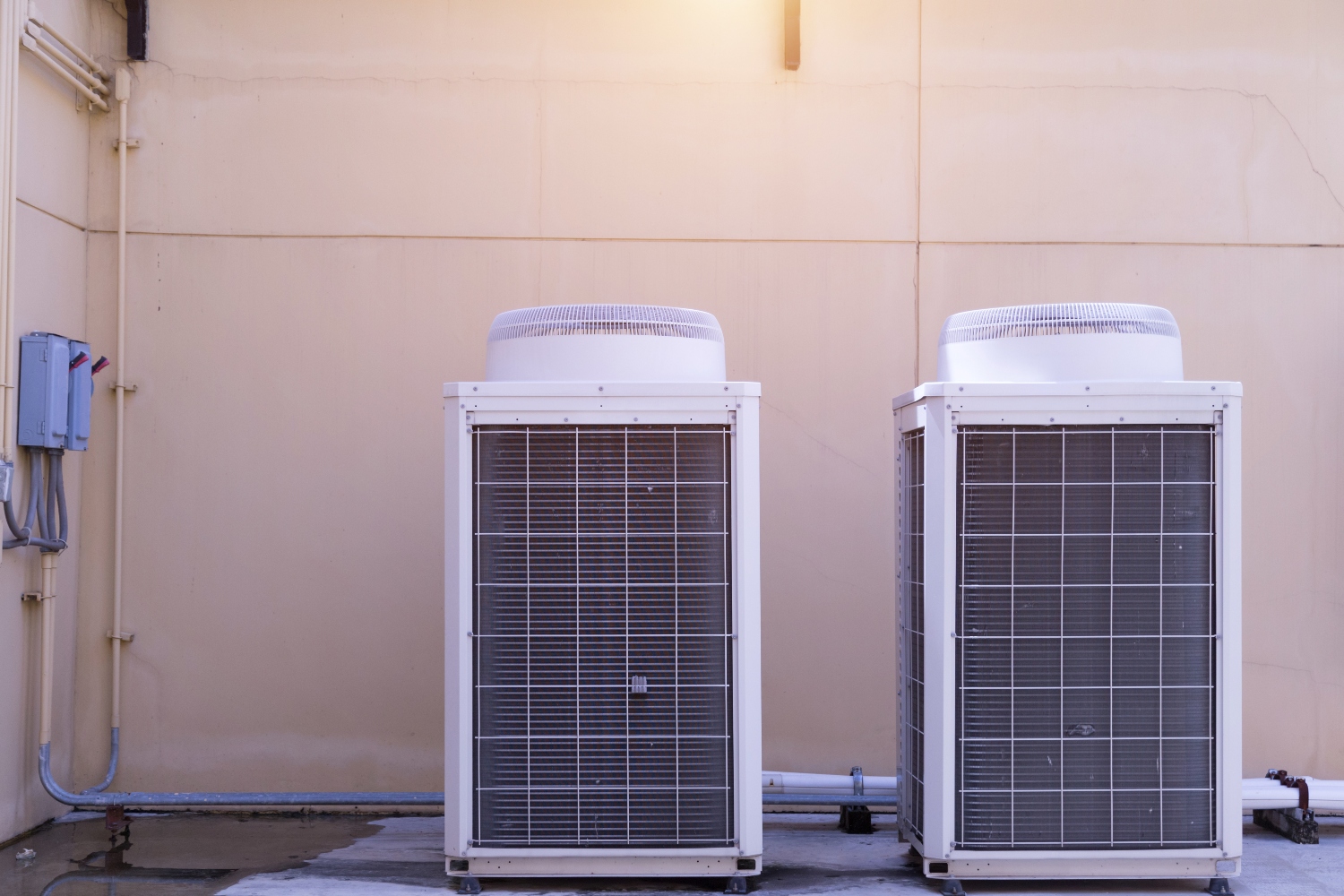
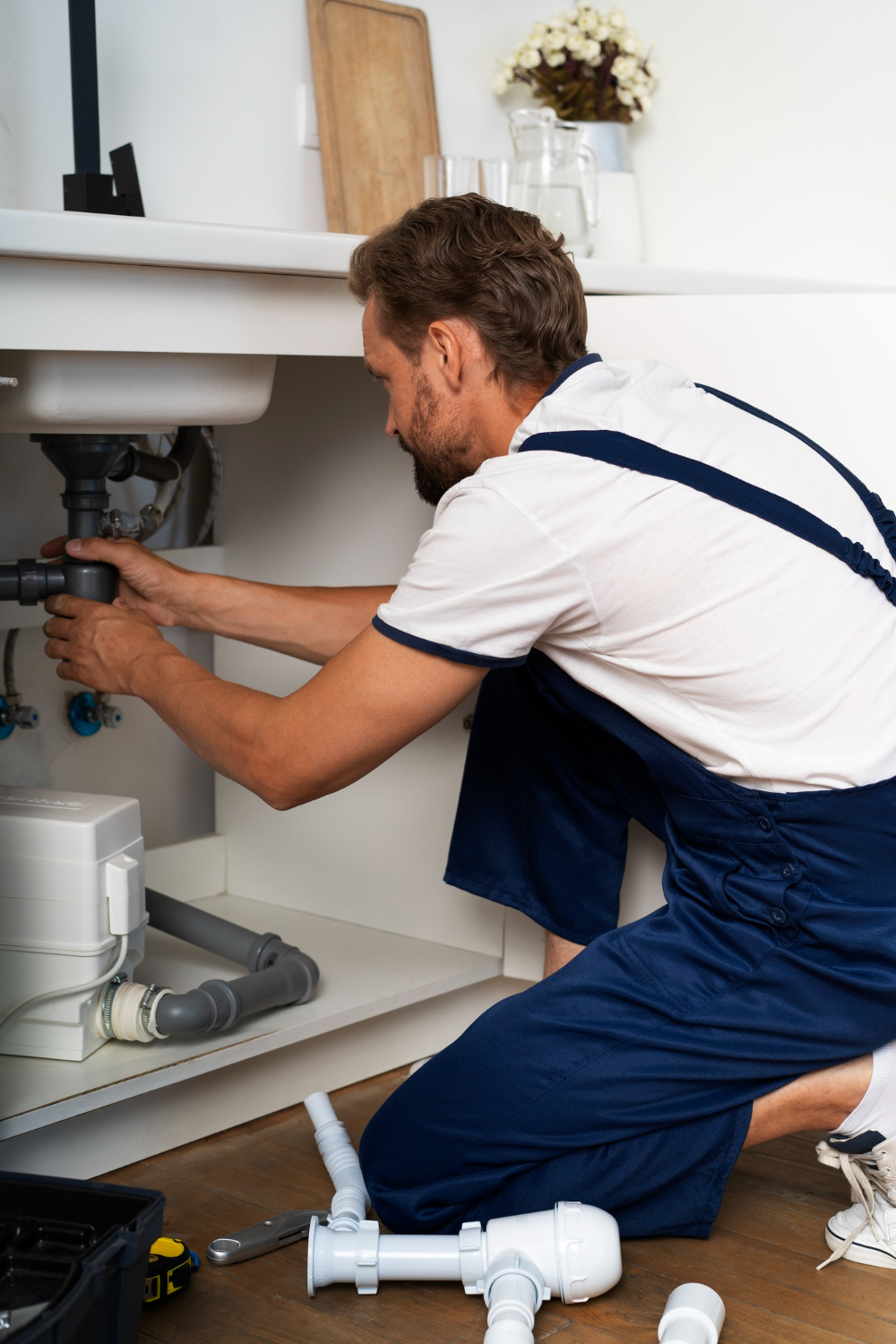
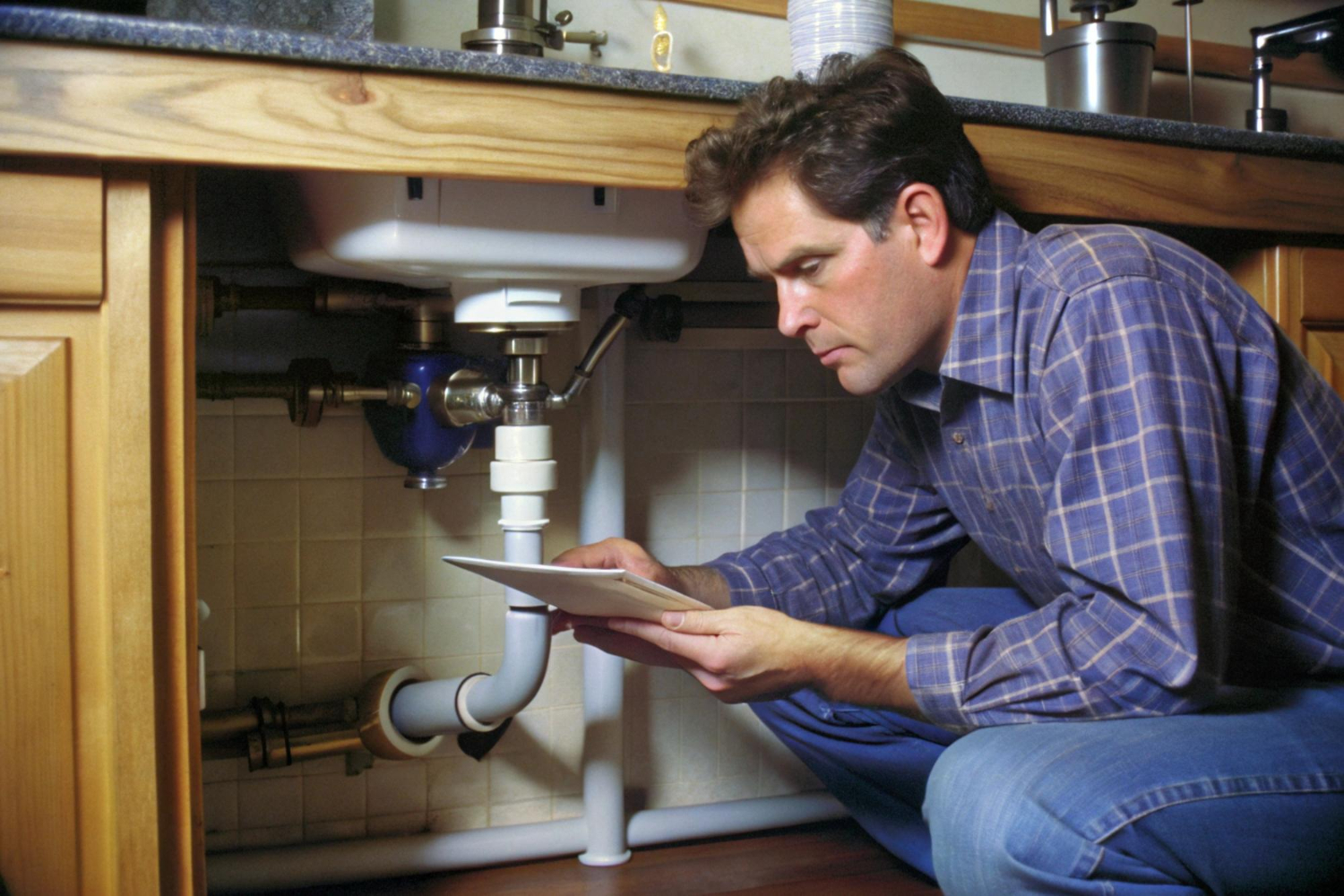
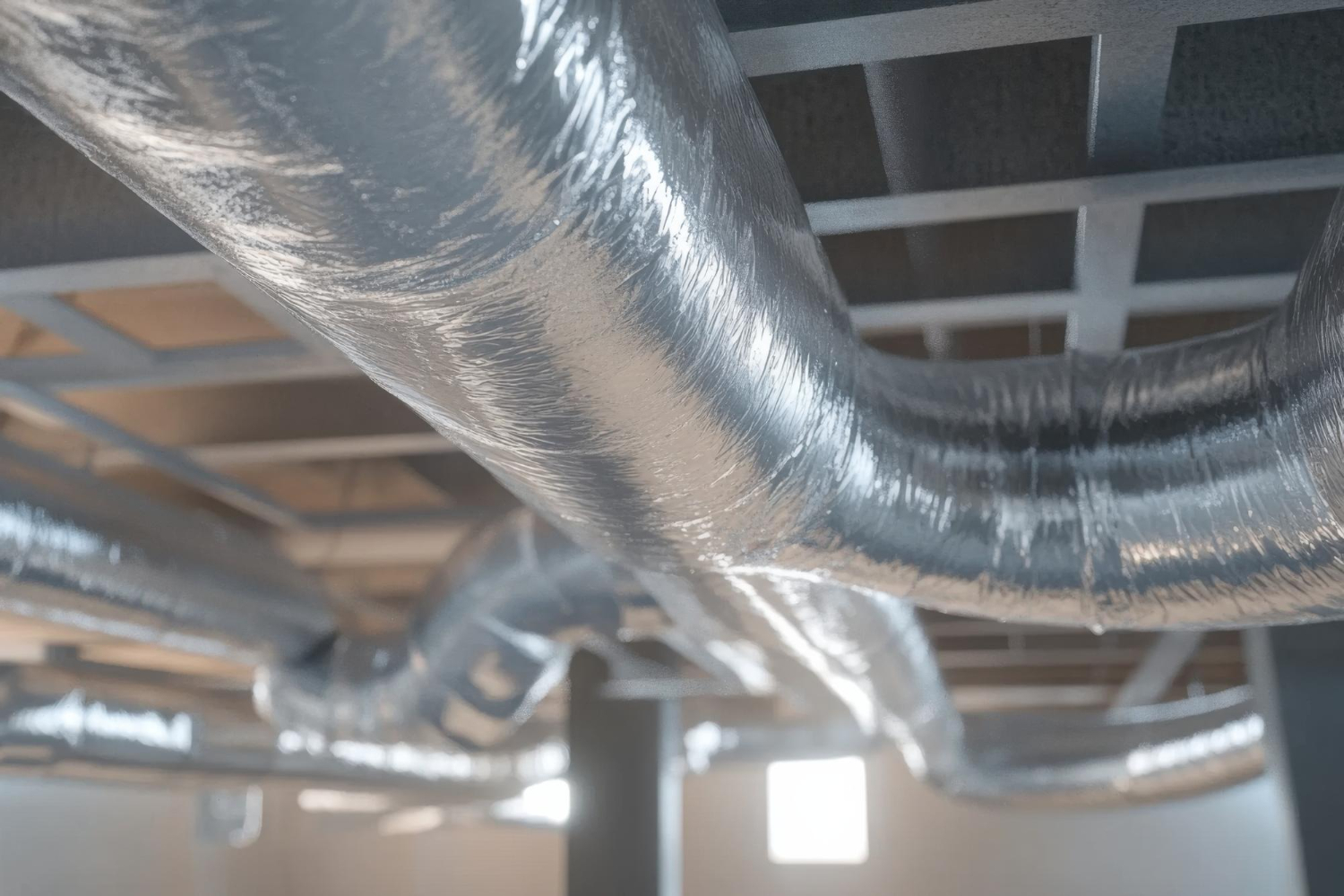
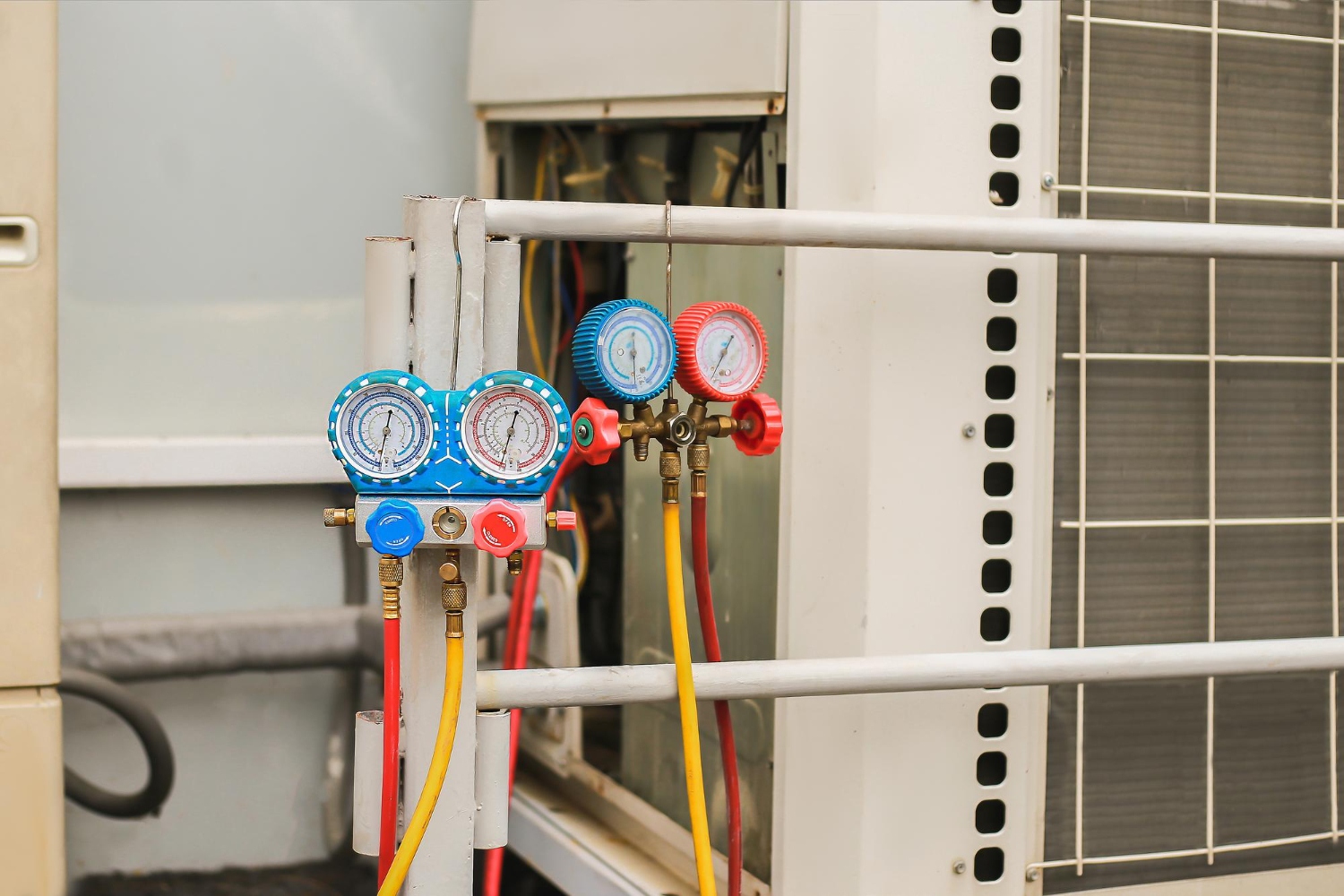
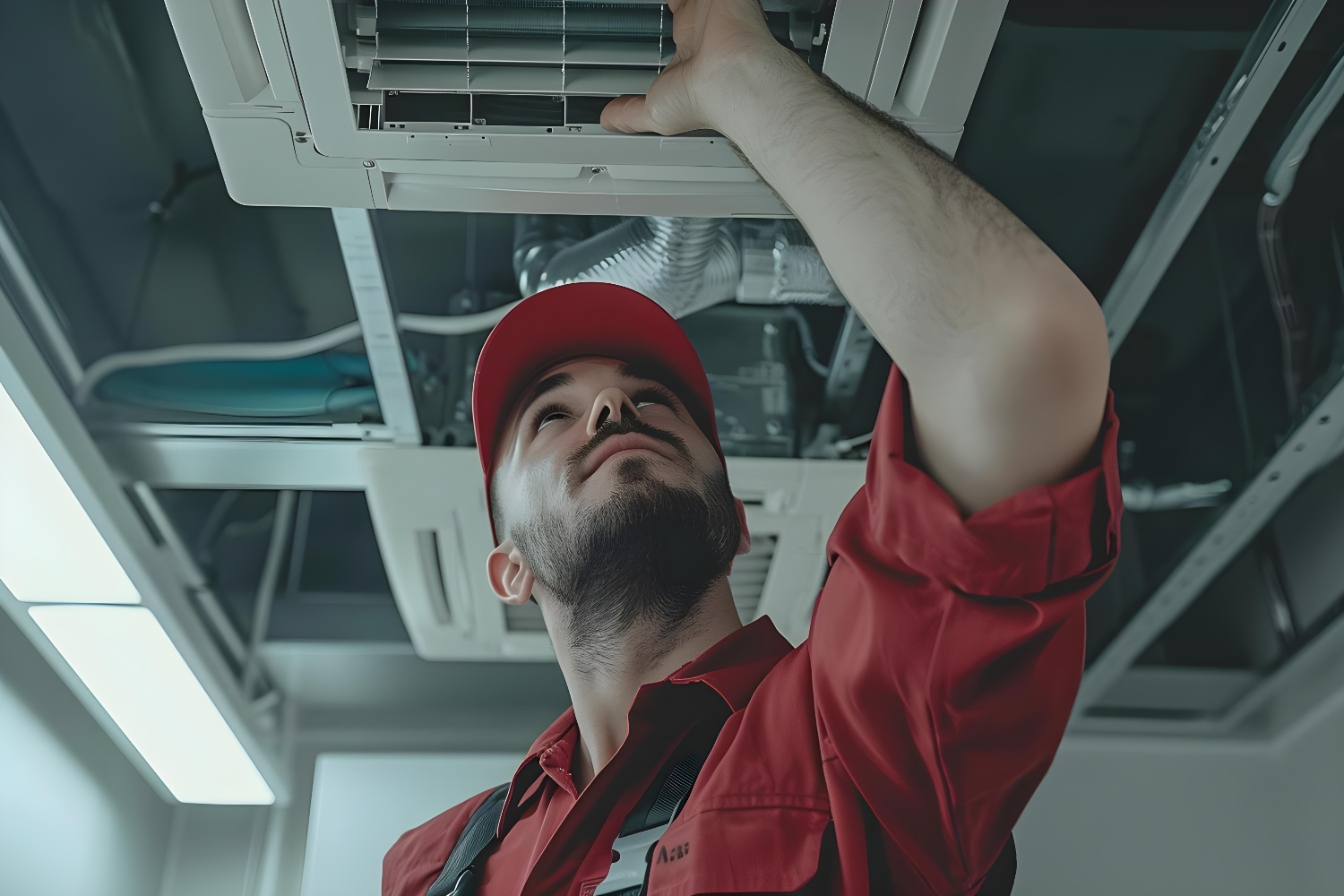
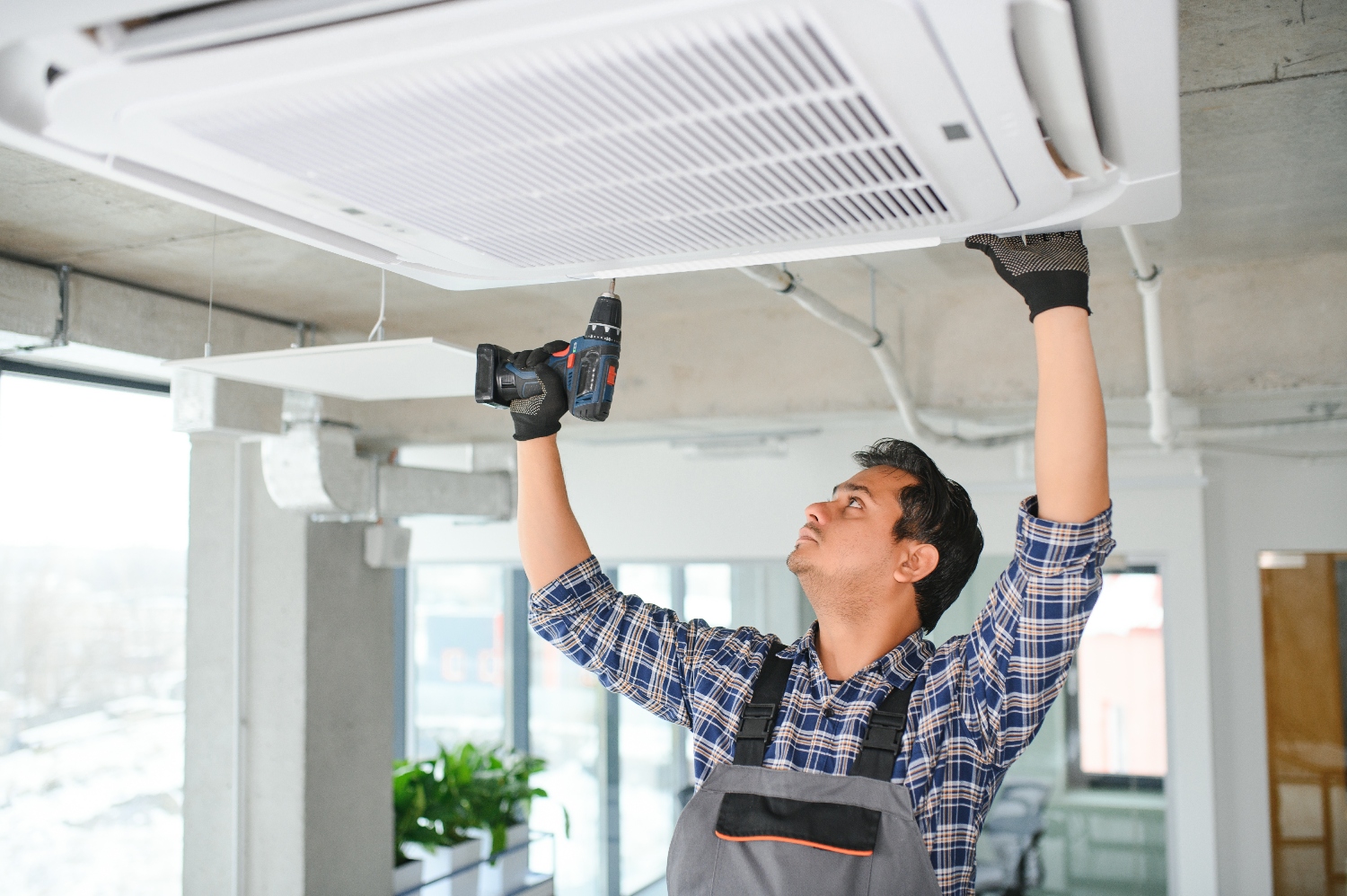
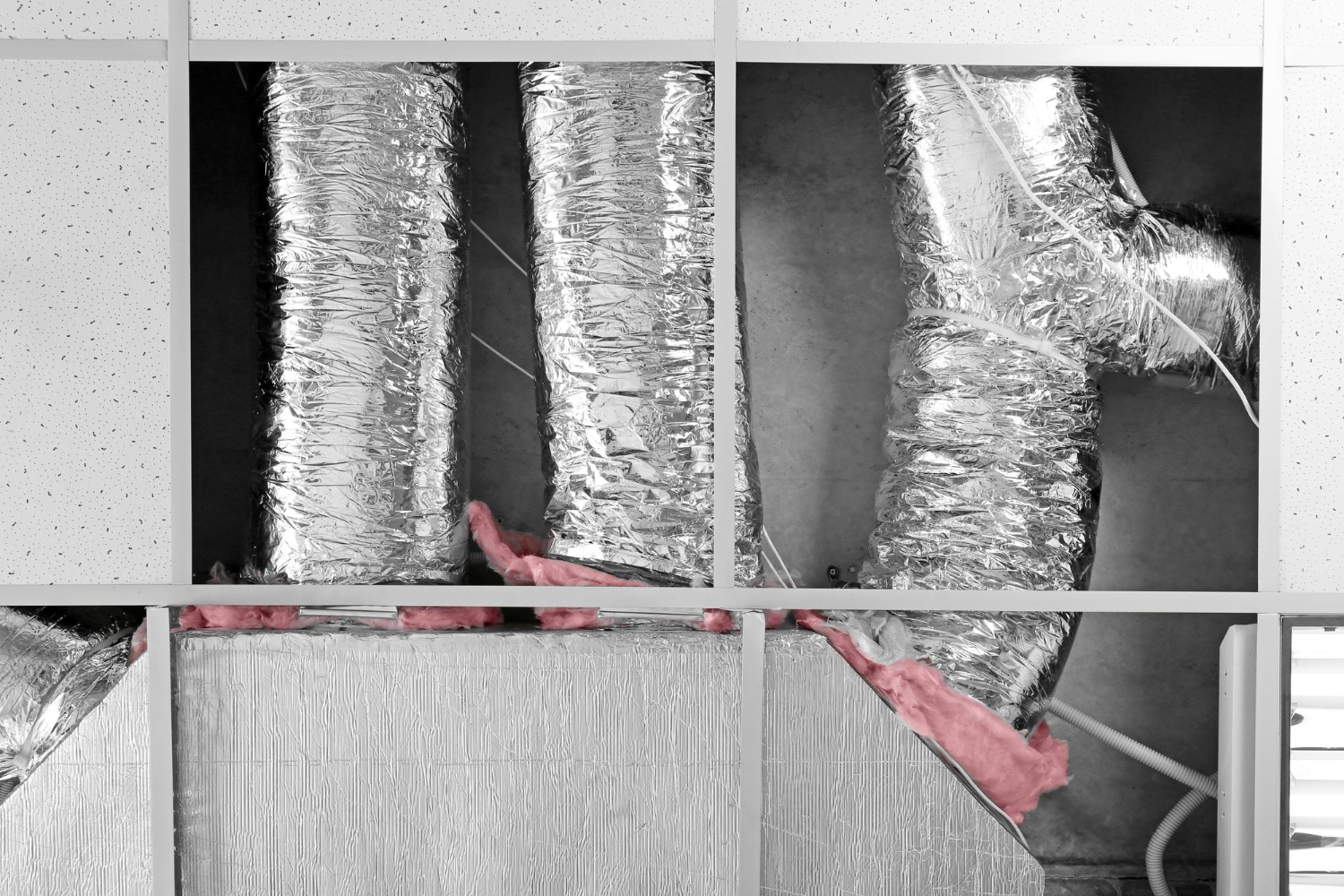































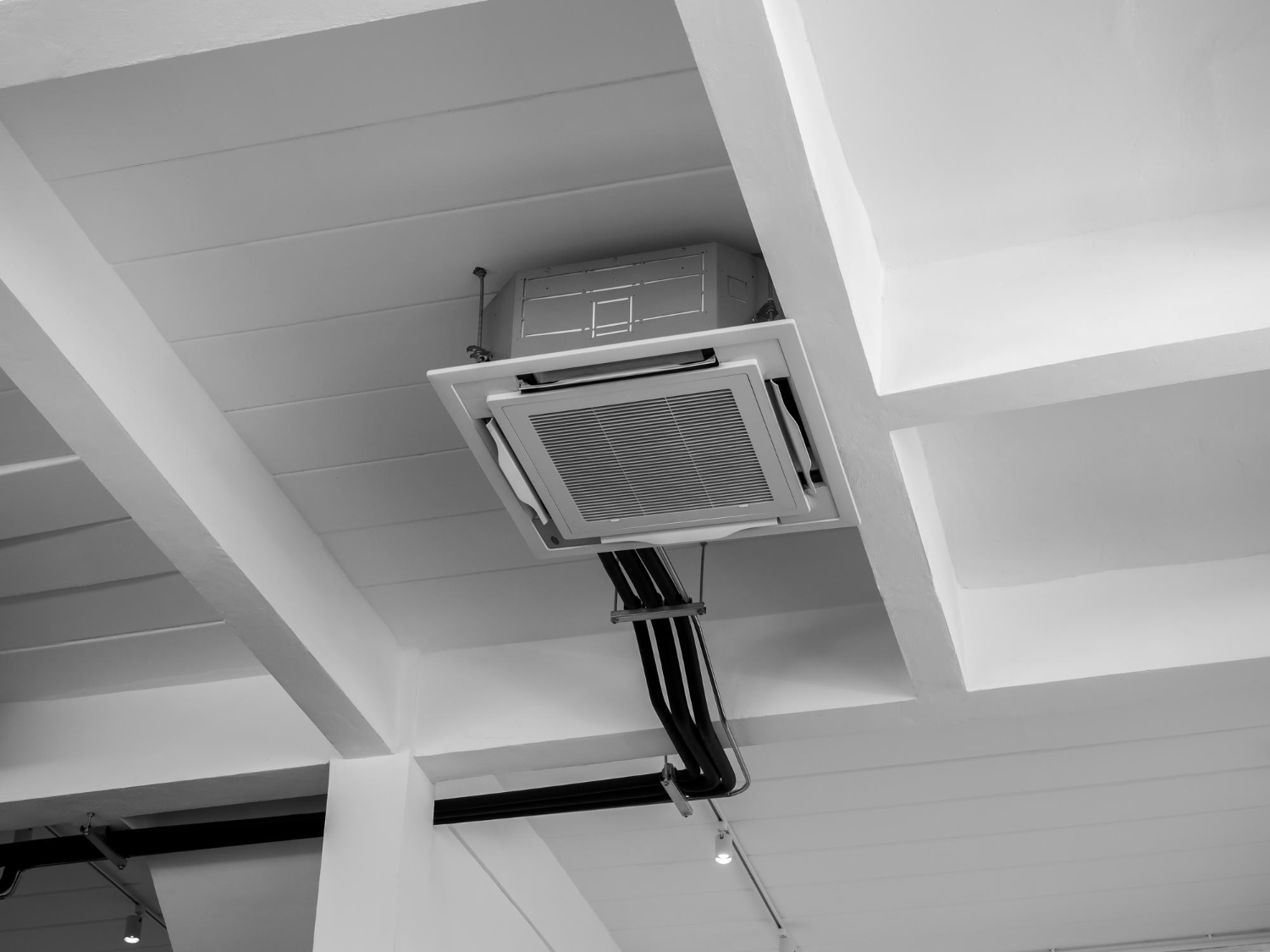




























.jpg)
.jpg)

.jpg)
.jpg)




















